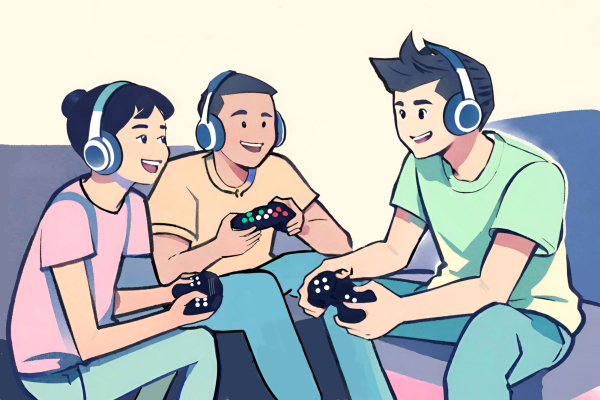Embrace the effort, not the outcome
A few weeks ago, I got myself into a pickle. I had a math test coming up, and like any self-proclaimed optimist, I visualized myself finally—finally!—getting that A. I searched tirelessly for silver linings and found some false hope in the fact that I had gotten a whopping three out of six answers right on our last homework assignment. Instead of bothering to study the material per usual, I became blinded by the idea of my perfect ending.
As you can imagine, my A didn’t work out. At all.
I had painted a picture of success in my head and hoped actual success would follow, but focusing on the outcome and trying to maintain my sunny disposition didn’t help me; instead, it hurt my study habits and my grade.
It’s easy to forget that the destination isn’t everything, especially in an age where vloggers constantly tell us to keep your chin up, buttercup; where lifestyle gurus clog our Instagram feeds with reminders that everything will work out; and where we rave more about the outcome than we appreciate the struggle. In the constant whirlwind of motivational quotes and gimmicks about achieving the perfect ending, the beginning and middle of our stories get lost.
In learning and in life, hoping for the best isn’t good enough.
For most of us at Whitman, focusing on the end game is all we know—we want an A on the test, an A in the class or an acceptance letter to that perfect college. Some students take AP after AP just to get into the Ivy League school of their dreams, only to complain about how much homework they have each day. Even the people who put in the work to reach their goals don’t benefit as people, they only benefit on a paper transcript. It’s not active, enthusiastic learning. It’s reluctant. It’s forced. Students make themselves miserable by overlooking the experience of actually learning and growing.
When we take classes with only the end goal in mind, we don’t learn. We memorize information for a test, then forget it right after. Students also miss out on taking classes they actually like—those funky, maybe-non-honors classes—in favor of improving their transcript. We forget that learning can be fun.
Imagining only the outcome can be detrimental. A 2011 study by the Journal of Experimental Social Psychology found that fantasies about success lead to poor achievement. They decrease motivation because the brain responds as if the goal has already been reached. Picturing the effort, though, rather than the outcome, leads to fulfilling one’s goals. And picturing the effort is a lot easier if it’s something you enjoy.
Out of college, my uncle didn’t know what he wanted to be. He ended up operating a forklift for a short time, then became a photographer and finally a photography professor at Iowa State University. He’s over 50 with a steady job, but last year he decided to take a sabbatical. On a whim, he travelled to Maine for a knife-making class, and he loved it so much that he’s designing a course to teach at Iowa State. To me, my uncle is a perfect representation of taking life in stride. He doesn’t forge ahead to what he thinks will be the ending, but waits patiently to see where life takes him.
I’m not anti-hoping-for-the-best. I’m not anti-sunshine or anti-rainbows or anti-daisies. I just think we need to learn to love the steps, the pit-stops and the confusion. In learning and in life, hoping for the best isn’t good enough; we need to be willing to work for what we want and learn to enjoy the work along the way.

12
Why did you join the Black and White?
I love writing, and I love the community.
What's your favorite scent?
Paper Mate erasers!










